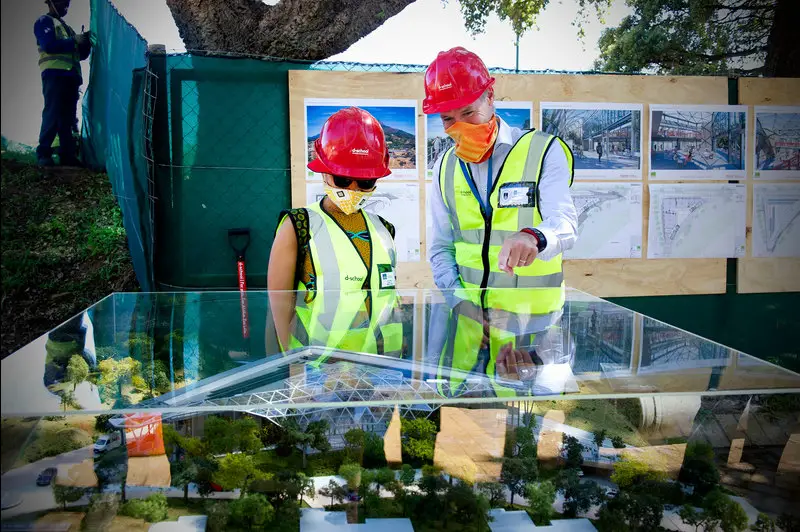The four-storey Hasso Plattner School of Design Thinking (d-school) to be constructed at the University of Cape Town (UCT) in South Africa is set to have a rooftop solar photovoltaic (PV) system; the first of a proposed campus roll-out. Through the Office of the Vice Chancellor’s Environmental Sustainability Directorate, the university has prepared a detailed technical and financial feasibility study for the potential of rooftop solar photovoltaic (PV) installations across all campuses.
Among the building’s biggest sustainable features is an energy-saving 63.5 kWpeak (or kWp) grid-tied PV system (solar energy) that will be installed on the roof by Solareff, who was awarded the tender for the contract. The PV’s monitoring system will be cloud-based, enabling monitoring to be done online. The data will be accessible via the internet and smartphone applications or set up on a smart TV in the d-school.
The energy fed into the building’s grid will be used to supplement the electricity from the municipality, and although the building won’t be self-sufficient, its reliance on the municipal grid will be reduced significantly.
According to Solareff project manager, Leigh-An Becker, as the d-school’s roof will feature a large section of fritted low-emissivity (low-e) glass for the atrium, reducing the available roof surface area, a high-power-class monocrystalline module is being proposed to achieve maximum energy yields.
Also Read: Solar Rooftop Programme to improve PV installed capacity in Botswana
Green-star rating
Other proposed sustainable features for the building include rainwater harvesting, a design that accentuates low-energy, natural air and light and a flexible design for different spatial configurations. The underground parking area also has bays for electric cars.
The d-school is aiming at a six-star Green Star rating from the Green Building Council South Africa, a status conferred on world leaders in environmental sustainability. If successful, it will be the first six-star Green Star-rated academic building in Africa.

